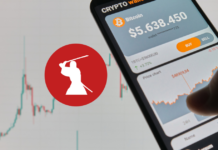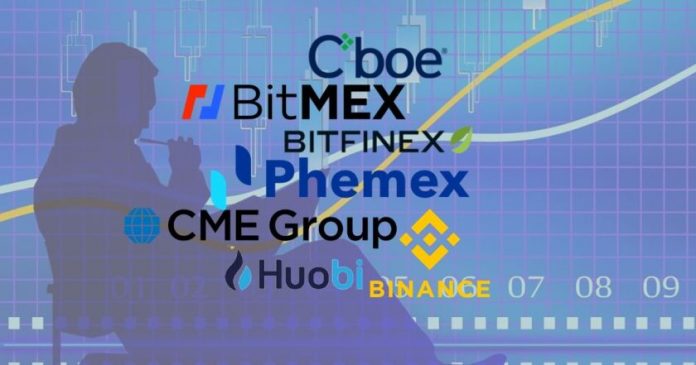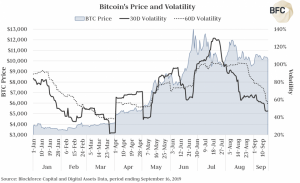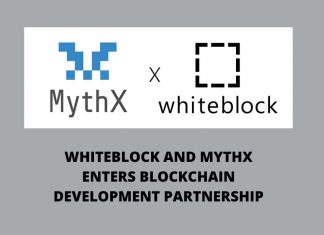On 3 January 2020, Bitcoin was precisely trading at $6891.25. For potential reasons like Bitcoin halving and more, the king coin rallied to the press time trading price of $10,096.78 in February. And when they say cryptocurrency is a volatile market, we must give them a big nod!
Source: Forbes.com
Along with the prices, the trader’s interest is also shifting towards derivatives and other financial instruments. They seem to be more interested in benefiting from the price volatilities of cryptocurrencies. But one must not rule out one big fact. In price frenzy movements, trading digital currencies could be quite risky.
Risk Mitigation
Firstly, let us understand the different forms of risks that need to be mitigated:
- Price fluctuation Risk – Tremendous price Volatility exists
- Cryptocurrency Risk – Because these digital assets are unregulated
Both the risks were mitigated to quite some extent when institutions like LedgerX, Chicago Mercantile Exchange (CME) and Chicago Board Options Exchange (CBOE) came out with Bitcoin derivative trading. The derivatives allowed investor’s hedge the risk. By signing a contract which derived its value from the price fluctuations, the investors were able to protect their investments. And that is why today we see the demand for Bitcoin futures growing immensely.
$1.1bln bitcoin futures traded yesterday at CME after the long weekend – only third time we record > $1bln pic.twitter.com/dxoblqOvUb
— skew (@skewdotcom) February 19, 2020
Here is the catch.
The LedgerX primarily allowed only accredited investors and institutional players. Furthermore, CME and CBOE Bitcoin contract sizes were too big for a retail trader. And this is when the new generation of crypto derivative trading platforms started mushrooming.
For CME the minimum contract size is 5 BTC (At the time of press 5 BTC = $ 47,964.25)
Source: cmegroup.com
These platforms wanted to make crypto derivative trading easy for both retail and institutional investors. But when new players enter the landscape, it is important to draw a comparison. Primarily because investors will entrust these platforms with their funds. And more reasons are outlined below:
Finding the right derivative trading platform
Crypto derivatives come in four different forms and today one can trade them on both traditional and crypto exchanges. We just discussed the big contract size problem associated with the traditional exchanges. So, for now, let us focus more on learning about exchanges that support derivative trading for both retail and institutional investors.
After conducting an extensive study of the crypto derivatives exchange market, we came out with a checklist. It might help you pin down the right derivative exchange:
Company Transparency and Credibility
It is of prime importance in crypto space to find a credible platform that does not shy away from listing its core member details. Some of the crypto derivative exchanges that have a good job with this are Phemex (Ex-Morgan Stanley executives), Bitmex, Bitfinex, Bybit, Binance, OKEX, and Huobi
Product diversity
The underlying assets for derivatives can be either crypto or traditional. As an investor, your interests might vary from time to time. The platform you chose must be capable of supporting this shift. Not many players in the current landscape support both kinds of assets. After thorough analysis just came across FTX which supports betting derivatives. Phemex promises to come up with derivatives backed traditional assets once it receives approval from the Monetary Authority of Singapore (MAS). The traditional assets would range from stock indexes, FOREX, interest rates, commodities, metals to more.
Availability of Public Testnet
Promising exemplary throughput and delivering so are two different things. We have been witness to Ethereum throughput scaling promises that have been going on forever. It is very important to trust only what you get. We discovered only Bitmex, Phemex, Binance(Futures) and Deribit have a public net. However, it is only Phemex that comes with a system capacity and velocity test feature. You can check out the Phemex performance demo below:
Leverage
It is the beauty of a derivative contract. Trade more that you actually own. Most of the exchanges support 100x leverage except Bitfinex, FTX, and Huobi. But with more leverage comes more risk thus the outcome is completely based on the trading skills of the investor.
Position handling
Depending upon how active a trader is in the trading space, he can long or short his positions. While trading perpetual contracts, an investor must have the leverage to create both long and short accounts. Few exchanges like Phemex, Binance, OKEX, and Huobi do support such sub-accounts.
Margin Types
To enter the leverage positions, investors must have choices to create specific strategies. With cross margins, the investor and avoid liquidations. While with an isolated margin, he can manage the risk. As the market is quite complex and unpredictable, such options make it possible for the investors to make the most out of their funds. Most of the top-ranking exchanges offer both margin types.
Withdrawal flexibility
This is completely an investor’s choice. Ideally, the exchange must support 24*7 withdrawals. But in the existing landscape, we see Phemex and ByBit doing the best job. They offer 3 withdrawals per day. The rest of the exchanges either support once a day or automatic withdrawals.
Trading Fees
A very important aspect of choosing a platform is the trading fees. Most of the leading exchanges like Phemex and Bitmex is charging 7.5bps taker fees and 2.5 bps maker fees. Some exchanges like Bitfinex are charging higher than usual. While Binance recently restructured its Fee Structure according to the VIP tiers and there are VIP Discounts too.
Settlement currencies
In crypto derivative space, this is a big limitation to date. While most of the exchanges support settlements only in BTC or respective crypto, it is Phemex, Bitfinex, and Binance that offer other options too. Bitfinex and Binance offer USDT settlement, Phemex offers nominal USD settlement along with BTC settlement.
One-Click Stop Loss
The high-volatility of the crypto-space makes it a scary place to trade. Even a delay of micro-second to stop or liquidate a trade could lead to massive losses. Only two exchanges seem to have taken a serious note of this aspect and support one-click stop loss. ByBit and Phemex are the only two that support one-click stop loss.
KYC
Know Your Customer is a necessary evil of crypto space. While it ensures the exchanges work in a regulated manner, it delays the onboarding process for the investors. And to increase the user experience, many exchanges have moved away from the KYC process. ByBit, Phemex, and Bitmex do not require KYC to onboard new investors.
The Final Takeaway
Undoubtedly, the crypto derivatives market is a complex territory, and it can be difficult for novice traders to pocket some profits. Only with a sound strategy and a top-notch trading platform can an investor make potential profits. A small mistake can cost too much in crypto space. As extensively as we researched the players in the space, we feel Phemex is doing a pretty good job for both retail and institutional players.
—
DISCLAIMER:
The information discussed by Altcoin Buzz is not financial advice. This information is for educational, informational and entertainment purposes only. Any information or strategies are thoughts and opinions relevant to accepted levels of risk tolerance of the writer/reviewers and their risk tolerance may be different than yours. We are not responsible for any losses that you may incur as a result of any investments directly or indirectly related to the information provided.
Do your own due diligence and rating before making any investments and consult your financial advisor. The researched information presented we believe to be correct and accurate however there is no guarantee or warranty as to the accuracy, timeliness, completeness. Bitcoin and other cryptocurrencies are high-risk investments so please do your due diligence. This interview, overview or update article has been compensated for media cooperation and has been sponsored for by the interviewed or reviewed organization. Copyright Altcoin Buzz Pte Ltd. All rights reserved.






























This is a very good and helpful article but leverage trading is quite complex and ill say anyone who really wants to become very good and make good profits from margin trading reall has to develope themselves in fundermental and techanical analysis before going into crypto leverage trading full time to void heavy losses